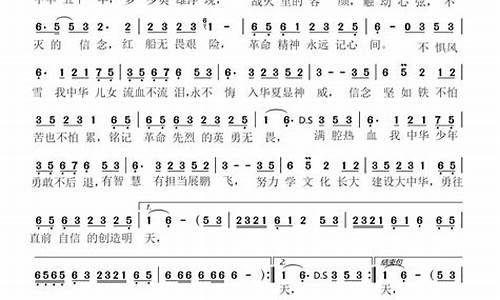no one knows_
1.i m feeling you
2.noone和noone的区别是什么

不定代词是不指明代替任何特定名词或形容词的代词,英语中不定代词有:some(something,somebody,someone),any(anything,anybody,anyone), no(nothing,nobody,no one), every(everything,everybody,everyone),all,each,both,much,many,(a)little,(a)few,other(s),another,none,one,either, neither等。
1.不定代词的作用
1)作主语,例:
Both(of us) are right.
(我们)两人都对。
Either(of the answers) is correct.
两个回答不论哪一个都对。
Neither(of the answers) is correct.
两个回答哪一个都不对。
Is everybody here?
大家都到了吗?
Nothing special hened yesterday.
昨天没有发生什么特殊的事情.
All is going well.
一切进行得很好。
2)作宾语,例:
There is room for all of us.
我们所有的人全坐得下。
He ge two to each(of them).
他给(他们)每人两个。
I like none of the books.
这些书我全不喜欢。
If you he any, give us some.
有的话,给我们一点。3)作表语,例:
That’s nothing.
没什么。
Is that all you want to know?
你想知道的就是这些吗?
Thanks, it’s too much for me.
谢谢,太多了。
I’m not somebody,I’m nobody.
我不是重要人物,我是个无名小卒.
That’s really something.
那真是一大收获。
4)作定语,例:
You may take either road.
两条路你走哪条都行。
Every room is clean and tidy.
每一个房间都很整洁。
Everybody’s business is nobody’s business.都管等于没人管。(谚)
Where are the other students?
其他的学生在哪里?
Please give another example to illustrate your point.请再举个例子来说明你的论点。
5)作同位语,例:
They both agreed to stay here.
他们两人都答应待在这儿。
We are all for him.
我们全支持他。
We none of us said anything.
我们谁也没说什么。
Give them two each.
给他们每人两个。
2.不定代词的用法比较
1)all,every和each的比较
all在表示抽象的整体概念时,作单数,相当于everything(一切东西),例:
All was destroyed in the big fire.
大火中一切都毁了。
Grasp all, lose all.
什么都抓,什么都抓不住。(谚)
Is that all you Want to know?
你想知道的就这些吗?
all指人时用作复数,意为指三者以上的“全部”、“全体”,相当于everyone(每个),例:
All are present.
大家都出席了。
There is room for all of us.
我们所有的人全坐得下。
She knows us all.
她认识我们所有的人。
all在人称代词前面,只能用all of,而且要与人称代词的宾格us, you, them等连用,如:all of us,而不能说成all us。
every用于三个或三个以上的人或物,是“每一个”的意思,只能作定语,强调整体概念,例:
Every player is present.
每个运动员都出场了。
They helped us in every way.
他们从各方面帮助我们。
在表示“每个”、“全体”意思时,every的意思与all很接近。但一般情况下every和单数名词搭配,all和复数名词搭配,例:
Every child enjoys Christmas.
每个孩子都喜欢过圣诞节。
All children enjoy Christmas.
所有的孩子都喜欢过圣诞节。
Each也是“每一个”的意思,但与every不同,each用于指两个或两个以上的人或物,着重于个别概念,例:
Two men came into the room. Each carried an umbrella.
两个人走进房间,每人拿着一把伞。
Each book on this desk is worth reading.
这桌子上每一本书都值得读。
He ge three to each(of them).
他给(他们)每人三个。
2) some和 any的比较
不定代词some,any都是“一些”的意思,都可和可数名词或不可数名词连用。some一般用于肯定句中;而any则用于否定句、疑问句或条件从句中,例:
Tom has some picture-books.
汤姆有几本图画书。
I he waited some time.
我已等了一会儿了。
He you any questions?
你有问题吗?
There aren’t any pictures on the wall.
墙上没有。
If there are any new magazines in the library, take
some for me.
如果图书馆来了新杂志,替我借几本。
注意:在表示请求或建议,希望得到肯定回答的疑问句中,应用 some而不用 any,例:
Would you please give me some paper?
请你给我一些纸张好吗?
Would you like some sugar?
你要点糖吗?(=给你一些糖好吗?)
some还可用于盼望得到肯定答复的疑问句,如:
Isn’t there some ink in that bottle?
那个瓶不是还有点墨水吗?
当any表示“任何”或“无论哪一个”的意义时,可用于肯定句,此时any要重读,例:
Any one will do.
任何一个都行。
You may come at any time that is convenient to you.
你可以在对你方便的任何时候来。
some, any和 body, one, thing构成合成代词 somebody,someone, something, anybody, anyone, anything等和 some,any的基本用法一样,由some构成的合成代词一般用于肯定句,由any构成的合成代词一般用于否定句和疑问句。
如果要在疑问句中表示请求,建议等肯定的意思或者盼望得到肯定的答复,须用somebody,someone或something。
3) many、 much和 few、little
many(很多), few(很少), a few(有几个)是表示数的代词,用以代替或修饰可数名词; much(很多),little(很少), a little(有一些)是表示量的代词,用以代替或修饰不可数名词。 a few和 a little表示肯定的意义,而 few和little
则表示否定意义。这些词一般作定语时较多,有时也可作主语、宾语,例:
She has as many books as you.
她拥有与你同样多的书。(定语)
I he few books to lend you.
我几乎没书可借给你。(定语)
My mother had a little money on her.
我妈妈身边有点儿钱。(定语)
Many he come to the meeting.
许多人已来开会。(主语)
There is little left.
没剩多少了(主语)。
He knows little about it.
这事他不太了解。(宾语)
How much is it?
多少钱?(表语)
注意: a lot(of), plenty of等一类的短语相当于many和much,可修饰可数或不可数名词,一般用于肯定句,例:
She has a lot of books on this subject.
她有许多关于这个课题的书。
4)other(s),the other和another
other表示“另一个”的意思,在句中可作主语、宾语或定语,不独立使用,通常修饰可数名词复数。其复数形式是others,可独立使用,无范围限定。other和others前面加定冠词the时是特指,表示两个中的一个;前面不带定冠词the时,表示泛指,例:
I he two brothers.One is a doctor,the other is a teacher.
我有两个兄弟。一个是医生,另一个是教师。(特指,作主语)
He is always ready to help others.
他总是乐意帮助别人。(泛指,作宾语)
Five of them are in the classroom.What about the others?
他们中有五个人在教室里。其余的人呢?(特指,作宾语)
another(另外一个,又一个)只能代替或修饰单数名词,可用作主语、宾语或定语,不独立使用。它实际上是由an+other构成的,因此前面不可再用冠词,即不定指。例:
Don’t lose heart.He another try.
别灰心,再试一次。(作定语)
I he got three English novels.One is written
by Charles Dickens,another(is written)by Mark
Twain,and the third(is written)by Bronte.
我有三本英语。一本是查尔·狄更斯写的,另一本是马克·吐温写的,还有一本是布朗蒂写的。(作主语)
another后面还可以跟few 或带数字的复数名词,例:
Just think what our town will be like in another few years.
设想一下,再过几年我们这个城市将是什么样子。
You’d better stay in bed for another two weeks.
i m feeling you
我恐怕这首歌不是德语的 这个名字看起来就不像。
查了一下,除了副歌以外,歌词还是英文的:
B-b-b-b-ba yonga wamba hey
Ba yonga wamba ho
B-b-b-b-ba yonga wamba hey
Ba yonga wamba ho
这一段听起来很像非洲的一些吟唱(我没有看过这首歌的mv) 不是很清楚意思究竟是什么。如果有人知道,麻烦也告诉我。
It is hard to believe
很难相信
When we seal the seven seas
我们……七大洋的时候(以吻封缄我是记得的,这里这个seal应该怎么理解?)
Noone knows the the storm has just begun
没人知道 风暴才刚刚开始
We get up we get down
我们(跟着波浪)上下起伏
Really sinking to the ground
可以说是“一头撞到岸上”
When we come to an island in the sun
来到这阳光沐浴下的海岛
And we hear that I'm sing
然后我们倾听我的歌唱
Ba yonga wamba hey
Ba yonga wamba ho
Ba yonga wamba hey
My mucochachao
Ba yonga wamba hey
Ba yonga wamba ho
Ba yonga wamba hey
My mucochachao
我的……什么?
Ba yonga wamba hey
Ba yonga wamba ho
Ba yonga wamba hey
My mucochachao
Ba yonga wamba hey
Ba yonga wamba ho
Ba yonga wamba hey
My mucochachao
Ba yonga hey
Take my love take my hand
接受我的爱,牵住我的手
Take me to the promised land
带我去你许我的地方(圣经中上帝许给犹太人一处立国之地,即“流着奶与蜜之地”,不知道跟这个有没有关系)
Where the sun and the ocean wanna blue
那里阳光照耀,海水蔚蓝(这句话我不是特别确定)
Kiss me once kiss me twice
吻我一次,再吻我一次
'cause it feels like paradise
这感觉就像是天堂
There is no better place for me and you
对你我来说,没有比这更好的地方
And we start to sing
我们开始放声歌唱
Ba yonga wamba hey
Ba yonga wamba ho
Ba yonga wamba hey
My mucochachao
Ba yonga wamba hey
Ba yonga wamba ho
Ba yonga wamba hey
My mucochachao
Ba yonga wamba hey
Ba yonga wamba ho
Ba yonga wamba hey
My mucochachao
Ba yonga wamba hey
Ba yonga wamba ho
Ba yonga wamba hey
My mucochachao
Ba yonga wamba
B-b-b-b-ba yonga wamba
Ba yonga wamba hey
Ba yonga wamba ho
Ba yonga wamba hey
My mucochachao
Ba yonga wamba hey
Ba yonga wamba ho
Ba yonga wamba hey
My mucochachao
Ba yonga wamba hey
Ba yonga wamba ho
Ba yonga wamba hey
My mucochachao
Ba yonga wamba hey
Ba yonga wamba ho
Ba yonga wamba hey
My mucochachao
Ba yonga wamba hey
Ba yonga wamba ho
Ba yonga wamba hey
My mucochachao
Ba yonga wamba hey
Ba yonga wamba ho
Ba yonga wamba hey
My mucochachao
Ba yonga wamba
Ba wamba
Ba wamba
Ba wamba
noone和noone的区别是什么
I'm Feeling You
I'm Feeling You? I'mFeelingYou CarlosSantana Santana&MichelleBranch Sometimes,iimaginetheworldwithoutyou Butmosttimes,i'mjustsohythatieverfoundyou It'sacomplicatedweb,thatyouweeinsidemyhead Somuchpleasurewithsuchpain Howwealways,alwaysstaythesame I'mfeelingthewayyoucrossmymind Andyousemeinthenickoftime I'mridingthehighs,i'mdiggingthelows Causeatleastifeelalive I'veneverfacedsomanyemotionaldays Butmylifeisgood I'mfeelingyou I'mfeelingyou Yougo,andthenicanfinallybreathein Causebabyiknow,intheendyou'reneverleing Wellwe'rerarelyeversane,idriveyoucrazyandyou dothesame Butyourfirefillsmysoul Anditwoundsmeuplikenooneknows Causei'mfeelingthewayyoucrossmymind Andyousemeinthenickoftime I'mridingthehighs,i'mdiggingthelows Causeatleastifeelalive I'veneverfacedsomanyemotionaldays Butmylifeisgood I'mfeelingyou I'mfeelingyou I'mfeelingthewayyoucrossmymind Andyousemeinthenickoftime I'mridingthehighs,i'mdiggingthelows Causeatleastifeelalive I'veneverfacedsomanyemotionaldays Butmylifeisgood I'mfeelingyou I'mfeelingyou I'mfeelingyou I'mfeelingyounone和noone意思相近,但用法有所区别。\x0d\none是all的反义词,意为“没有人;没有什么东西;一个也不”,既可以指人,也可以指物,它与of连用修饰名词或代词作主语时,谓语动词既可用单数也可用复数。noone意为“没有人”,只能指人,不能与of连用,作主语时,谓语动词只能用单数形式。例如:\x0d\\x0d\Noneofthemoneyonthetableismine.桌子上的钱没有一分是我的。\x0d\\x0d\Noneofusenjoys/enjoygettingupearly.我们没人喜欢早起。\x0d\\x0d\Noneoftheboyshas/hepassedthehistoryexamination.男孩子中没有人历史考试及格。\x0d\\x0d\Noonelikesher.没人喜欢她。\x0d\\x0d\Nooneknowshowtodothework.没有人知道怎样做那项工作。\x0d\\x0d\另外,需要注意的是:回答howmany引起的特殊疑问句时要用none;回答who引起的特殊疑问句时要用noone。例如:\x0d\\x0d\(1)—Howmanybirdsarethereinthetree?树上有多少只鸟?\x0d\\x0d\—None.一只也没有。\x0d\\x0d\(2)—Whoisintheclassroom?谁在教室里?\x0d\\x0d\—Noone.谁都不在。(一个人也没有)\x0d\\x0d\区别1\x0d\none既可指人也可指物,常暗示一定范围,因此通常与表范围的of短语连用;而noone(=nobody)只能指人,不能与of短语连用。如:\x0d\\x0d\Noneofthatmoneyonthetableismine.桌上没有一分钱是我的。\x0d\\x0d\Noneofusenjoygettingupearly.我们中间没人喜欢早起。\x0d\\x0d\Noone(=Nobody)knowsaboutit.没有人了解此事。\x0d\\x0d\区别2\x0d\\x0d\none与数量有关,可回答howmany,表示“一个也没有”;而noone表示“什么人也没有”,可回答who。如:\x0d\\x0d\—Howmanypeoplearethereinthatroom?—None.那个房间里有几个人?一个人也没有。\x0d\\x0d\—Whowaslatetoday?—Noone.今天谁迟到了?谁也没有迟到。\x0d\\x0d\区别3\x0d\\x0d\none用于下列短语中:henoneof不接受(notaccept);nonebut只有(only);noneotherthan正是;secondtonone首屈一指的(thebest);nonethe一点也不(用在比较级前);nonetoo不太(notvery)。\x0d\\x0d\None表示一个都没有\x0d\\x0d\Noone一般时表示”没有人“,\x0d\\x0d\在表示没人的时候,两个词是通用的,Noone很少用于表示物。\x0d\noone,none与nothing之别\x0d\1.noone\x0d\1)不与of连用;2)谓语动词用单数;3)只能指人,但不具体指什么人;4)一般用来回答who,及含\x0d\anyone,anybody引起的疑问句。如:\x0d\1)Noonelikeapersonwithbadmanners.\x0d\2)——Whoisintheroom?\x0d\——Noone.\x0d\3)——Isthereanyoneintheroom?\x0d\——Noone.\x0d\2.none\x0d\1)可与of连用;2)谓语动词用单或复数;3)具体指什么人或物;4)一般用来回答howmany+n,how\x0d\much+n及含any+n引起的疑问句。请看:\x0d\1)Noneofushe/hasseenhim.\x0d\2)——Howmanystudentsarethereintheroom?——None.\x0d\3)——Isthereanywaterinthethermos?——None.\x0d\4)——Howmuchmoneydoyouheonyou?——None.\x0d\下面的顺中溜将帮你记得更清楚。\x0d\Noone与none好分辨。/具体人,物把none填。\x0d\不知何人与何物,/Noonenothing是一路。\x0d\Noone人nothing物,/保你不会出错误。\x0d\none和noone的区别\x0d\1.none单独使用时常用于回答“Howmany或Howmuch”的句型。\x0d\\x0d\2.none可以of?搭配,构成完全否定的句型。可指人,也可指物。\x0d\\x0d\3.noone一般用来回答“Who”的句型。nobody一般不能单独作为答语。\x0d\\x0d\4.noone不能of连用,可指人,也可指物,语气比none强。\x0d\noone和none\x0d\a)none后跟of短语,既可指人又可指物,而noone只单独使用,只指人。\x0d\b)none作主语,谓语动词用单,复数均可,而noone作主语谓语动词只能是单数。\x0d\\x0d\Noneofyoucouldliftit.你们中没有人可举起它。\x0d\----Didanyonecallmeupjustnow?--刚才有人打电话给我吗?\x0d\\x0d\----Noone.--没有。\x0d\no=notany/nota(an).在句子中作定语,修饰可数或不可数名词,zone在句中作宾语.\x0d\例如:Thereisnowaterinthewell.井里没有水.(定语)\x0d\Hehasnosister.他没有妹妹.(定语)\x0d\Noneofthemknowthestory.他们都不知道这个故事.(主语)\x0d\--Howmanyforeignersheyoumetintheexhibition?展会上你遇见多少外国人?\x0d\--None.一个也没有.(宾语)\x0d\None代替不可数名词作主语时,谓语动词用单数形式;代替可数名词作主语时,谓语动词可用单数,也可用复数.\x0d\例如:Noneoftheinformationiscorrect.信息都不正确.\x0d\Noneofthesoldiersare(is)afraidofdifficults.战士们都不怕困难.\x0d\==noneadv.决不,毫不pron.一个也没有,毫无\x0d\noonen.没有人pron.(代词)没有人;无人\x0d\1.noone意为“没有人”,只能指人,不能指物,不可与介词of连用,谓语动词用单数形式,回答who引导的问句。如:—Whoisintheclassroom?—Noone.2.none既可指人,也可指物,强调数量,意为“一点也不,一个也不”;谓语动词既可用单数也可用复数;常与of连用,通常指“三者以上的人或物中没有一个”,回答howmuch和howmany引导的问句。如:Theywerealltired,butnoneofthemwouldstoptohearest.\x0d\none和noone的区别2009-01-1610:231.none单独使用时常用于回答“Howmany”的句型。\x0d\2.none可以of?搭配,构成完全否定的句型。可指人,也可指物。\x0d\\x0d\3.noone一般用来回答“Who”的句型。noone用于指人,不与of短语连用,用作单数。\x0d\\x0d\4.noone不能of连用,可指人,也可指物,语气比none强。\x0d\\x0d\5.如果仅仅想表示数量上的没有要用none,不能用noone.\x0d\\x0d\如:\x0d\Nooneknowstheanswer\x0d\\x0d\Noneofthemhe(has)arrived
声明:本站所有文章资源内容,如无特殊说明或标注,均为采集网络资源。如若本站内容侵犯了原著者的合法权益,可联系本站删除。












